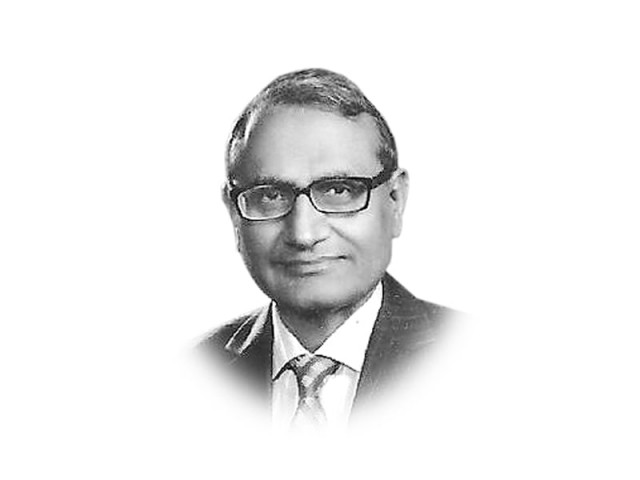Subsidise now, privatise later
A future PML-N manifesto will then write about the fiscal haemorrhage caused by the Punjab Metro Bus Authority


As a matter of fact, the PML-N government in Punjab is actively involved in creating public sector entities that are likely to add a huge subsidy burden. The Lahore metro bus is only the first example. Estimates of total cost vary from the staggering unofficial figure of Rs70 billion to the precisely wrong amount of Rs29,821.762 million attributed to the head of the Punjab Planning and Development Board. The official himself admitted to the projects having been divided into 11 packages. There are, however, more packages hidden here and there in the budget. The main project is shown under urban development, which as a whole was allocated Rs14 billion in the 2013-14 budget, but the revised spending shot up to Rs42 billion. Obviously, the difference was caused by instant induction of the metro bus project. In the budget for 2014-15, it is still shown as an ongoing project with an allocation of Rs1.62 billion. The total allocation for urban development is Rs40.4 billion. If the past is any guide, the revised figure will be much higher. Engineer Abbas Hasan, who must know what he is talking about, says that the cost was $11 million per kilometre, whereas the “fit for purpose” estimate could not be more than $5-7 million per kilometre.
Cost aside, the puzzling thing is the non-availability of the running cost. There is a gap of Rs35-45 between the fare charged and what the market will bear. A back-of-the-envelope calculation places the subsidy at around Rs2 billion. This is without any allowance for wear and tear. Already, overheating of buses is a common occurrence. There are reports of the non-observance of labour rights, another element of cost which cannot be kept low. The subsidy is likely to increase in the coming years. So will the losses. A future PML-N manifesto will then write about the fiscal haemorrhage caused by the Punjab Metro Bus Authority and the ‘fundamental’ need to privatise it. Subsidise now, privatise later, is a policy of double deception.
Published in The Express Tribune, December 12th, 2014.
Like Opinion & Editorial on Facebook, follow @ETOpEd on Twitter to receive all updates on all our daily pieces.















COMMENTS
Comments are moderated and generally will be posted if they are on-topic and not abusive.
For more information, please see our Comments FAQ